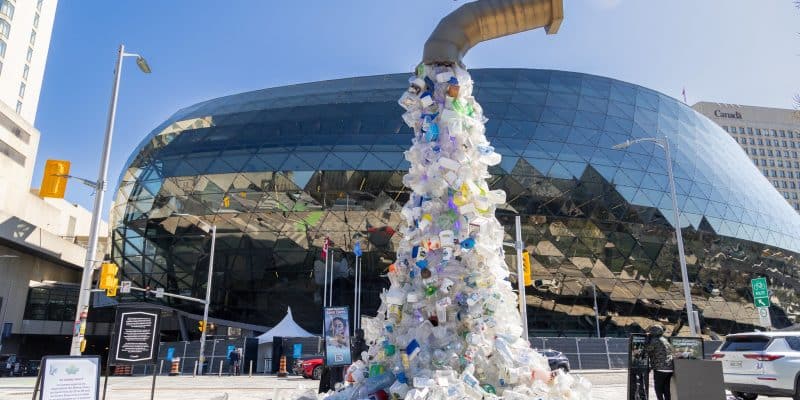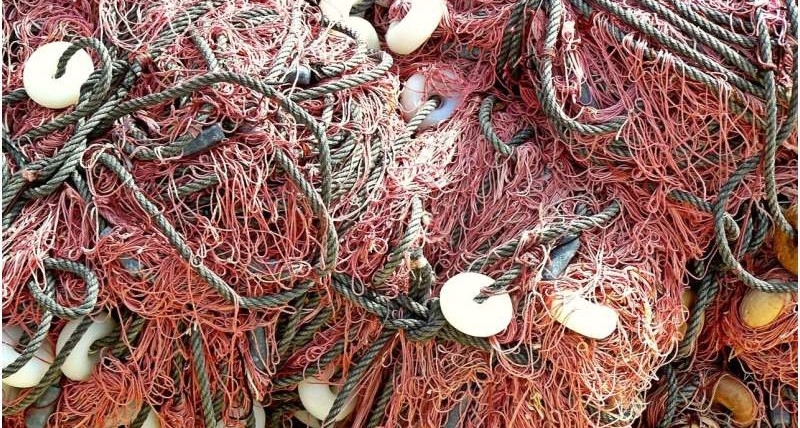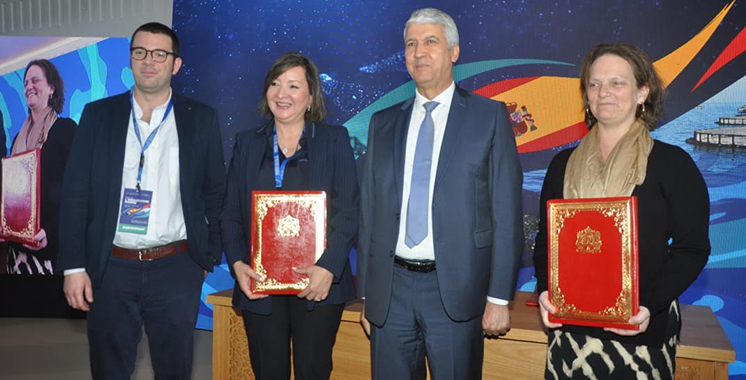How to tackle the unsustainable production of plastics? While it was believed that this fundamental question would be the breadcrumb trail of the fourth session of the Intergovernmental Negotiating Committee (INC-4) for a global treaty against plastic pollution, which was held in Ottawa, Canada, from 23 as of April 29, 2024, against all expectations, discussions on the inclusion of a production ceiling for primary polymers have been excluded, leaving room for questions relating to the management of plastic waste and financing.
“The Intergovernmental Negotiating Committee (INC-4) has once again failed to ask the most fundamental question for the success of the future global plastics treaty: how to tackle the unsustainable production of plastics? », Regretted Jacob Kean-Hammerson, in charge of the Ocean campaign at the Environmental Investigation Agency (EEA), who participated in the negotiations in Ottawa in Canada, from April 23 to 29, 2024. And this is not not for lack of proposals to reduce unsustainable plastic production, including a proposal for intersessional work from Rwanda and Peru on primary plastic polymers, aiming to reduce global use of primary plastic polymers by 40% by 2040 compared to 2025 levels. A proposal that several delegations, including Malawi, the Philippines and Fiji, strongly supported.
However, these tiny plastic particles, less than 5 mm in size, constitute a source of pollution that is worrying for the environment, biodiversity and human health. This is also why the G7 countries (Canada, United Kingdom, France, Germany, Italy, Japan and the United States of America), gathered on April 29, 2024 in Turin, Italy to discuss environment and strategy to face climate change, have committed to reducing the global production of primary plastic polymers in order to end plastic pollution by 2040.
In addition to the proposal from Kigali and Lima which was sidelined, Rwanda being one of the first countries in the world to have banned single-use plastic bottles and bags, several countries launched the “Bridge to Busan” declaration. » on plastic polymers to rally parties in favor of retaining the provision for primary plastic polymers in the treaty text and to create momentum for the fifth and final round of negotiations to be held in Busan, South Korea , from November 25 to December 1, 2024.
A project contested by polymer producers and lobbyists
If a consensus has not been found on the reduction of plastic production at the global level, it is because the countries producing polymers and plastics, including Saudi Arabia, India, Kuwait and Qatar are not ready to commit to it, as are the 196 fossil fuel and chemical industry lobbyists who participated in the negotiations in the Canadian capital. « They have further sowed doubt about the scope of the draft treaty in order to redefine what the full life cycle of plastics means, in an apparent attempt to restrict the scope of the proposed treaty to only questions relating to the waste management,” says the EEA. Because producing less plastic would mean a reduction in their turnover.
In light of the divergent views, the parties operated under provisionally applied procedural rules that allow voting on decisions if all efforts to reach consensus have been exhausted. Compromises were made on the result, which did not take into account the cap on plastic production, which takes us further away from the conclusion of a treaty that environmentalists and States concerned about the future of the planet demand. and that justice demands. However, Canada hoped to reduce the text of the draft treaty by 70% in order to reach an agreement by the end of 2024.
If the direction that will be definitively given to the legally binding international agreement on plastic has not been clearly specified by April 29, 2024, the intersessional work that took place there, in particular on the financial mechanism, as well as on plastic products, chemicals of concern in plastic products, product design, reuse and recyclability have led to speculation that the global plastic treaty will prioritize recycling, although Canada supported the proposal of the Rwanda and Peru. A practice, far from being the best applied in the end. Because, according to the United Nations Environment Program (UNEP), only 9% of the 9 billion tonnes of plastic that the world has ever produced have been recycled.
The heavy ecological toll
A plastics treaty that does not take into account the production process is sure to be an environmental disaster, with plastic also contributing to the climate crisis. According to the United Nations (UN), plastic production is one of the most energy-intensive manufacturing processes on the planet. This material is made from fossil fuels such as crude oil, which is transformed into a polymer using heat and other additives. In 2019, for example, plastics generated 1.8 billion tonnes of greenhouse gas (GHG) emissions, or 3.4% of global emissions.
In order to limit this disaster, as well as plastic pollution, the UN also invites States to encourage innovation and put in place incentives for companies to abandon “useless” plastics. Taxes are also needed to discourage the production or use of single-use plastic products, while tax cuts, subsidies and other tax benefits must be put in place to promote alternatives, such as reusable products.




